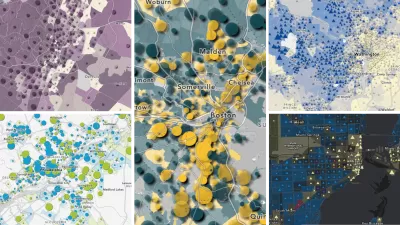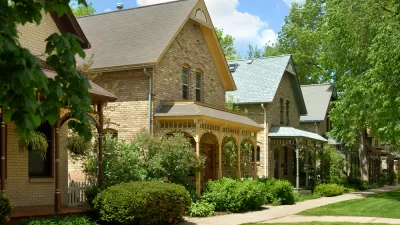'Doubling up', when multiple families live under one roof to save money, is nothing new - it increases when economic times are difficult, especially with extended families. However, the Census reports that adults aged 35+ now exceed younger groups.
When times are tight, children will return to live with their parents. For the first time, older adults have taken up that strategy in record numbers, reports the Census Bureau. While there are upsides to these 'extended families', it also masks an increase in poverty as the Census combines all incomes for those living together.
"When struggling adults share households with other family, it may keep them out of poverty members "More adults ages 35 or older are packing up their households and bunking with in-laws, siblings, parents or other kin. It's happening at a historically high rate, according to new Census Bureau estimates. Nearly 500,000 such folks moved in with family over the past two years, compared with some 400,000 in the 25-to-34 age group traditionally known for returning to live with parents. Together, the two groups drove an 11.4 percent increase in the number of U.S. households containing extended families.
But the surge's impact is especially profound among the older adults, accelerating a pattern begun during the 2000 recession: 3.4 million more Americans ages 35 and older have moved in with relatives over the decade. Their numbers increased twice as fast as the age group's population."
FULL STORY: For Many Families, Bad Times Require 'Doubling Up'

Maui's Vacation Rental Debate Turns Ugly
Verbal attacks, misinformation campaigns and fistfights plague a high-stakes debate to convert thousands of vacation rentals into long-term housing.

Planetizen Federal Action Tracker
A weekly monitor of how Trump’s orders and actions are impacting planners and planning in America.

In Urban Planning, AI Prompting Could be the New Design Thinking
Creativity has long been key to great urban design. What if we see AI as our new creative partner?

King County Supportive Housing Program Offers Hope for Unhoused Residents
The county is taking a ‘Housing First’ approach that prioritizes getting people into housing, then offering wraparound supportive services.

Researchers Use AI to Get Clearer Picture of US Housing
Analysts are using artificial intelligence to supercharge their research by allowing them to comb through data faster. Though these AI tools can be error prone, they save time and housing researchers are optimistic about the future.

Making Shared Micromobility More Inclusive
Cities and shared mobility system operators can do more to include people with disabilities in planning and operations, per a new report.
Urban Design for Planners 1: Software Tools
This six-course series explores essential urban design concepts using open source software and equips planners with the tools they need to participate fully in the urban design process.
Planning for Universal Design
Learn the tools for implementing Universal Design in planning regulations.
planning NEXT
Appalachian Highlands Housing Partners
Mpact (founded as Rail~Volution)
City of Camden Redevelopment Agency
City of Astoria
City of Portland
City of Laramie





























